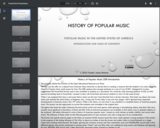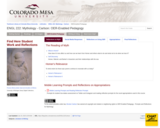
Comparative Politics: A Practical Guide for a Globalizing World is perhaps the first introductory textbook in comparative politics to be written with an emphasis on case studies from the Global South and other alternative perspectives. It was inspired by my own experience as a student and professor who had the privilege to live, learn, and work in places as diverse as Bangladesh, Egypt, and Germany. My experience in each country provided an important contribution to my own understanding of political science, perhaps in more important ways than my formal political science education. It was written with the belief that political science has focused too heavily on developing theories and models based primarily on the “Western” world to the detriment of both the discipline as well as students. 21st century students are learning and living in an increasingly globalized world in which traditional notions of statehood, development, elections, and more are rapidly changing and facing deep contestation. Following the calls to “decolonize” its sister discipline, International Relations, it is both timely and imperative that comparative politics follows suit. While traditional approaches offer important lessons about the nature of government and political processes, this text believes that the Global South has much to offer in the way of what politics looks like in the face of social unrest, increasing inequality, disputed legitimacy, climate change and other 21st century challenges that the Global North can no longer ignore. Another unique aspect of this textbook is that it contains contributions from students from Colorado Mesa University, a rural institution in Western Colorado primarily focused on undergraduate and first-generation education, with edits and additions from myself. Therefore, this book is written both by and for students of first-generation and minority-serving institutions.
POLS 261 Course Description: In this course, we will explore contemporary comparative politics. Comparative politics is the study of different political systems outside of the United States, with the goal of comparing these different systems in order to better understand the advantages and disadvantages of how various political systems are designed. We will focus on several questions that have been central to this sub-field of political science including democratization and democratic stability, how states vary in their political institutions on a constitutional, electoral, administrative, and party level, and what explains the persistence of ethnicity and causes of civil conflict. Students will use cases from various global regions and employ comparative research methods.
- Subject:
- Political Science
- Social Science
- Material Type:
- Textbook
- Provider:
- Colorado Mesa University
- Author:
- Addison Chambers
- Holly Oberle
- Joe Williams
- Juston Robson
- Kyle Patten
- Lauren Pepin
- Molly Brimhall
- Sadie Kelley
- Trevor Cook
- Date Added:
- 06/29/2023




